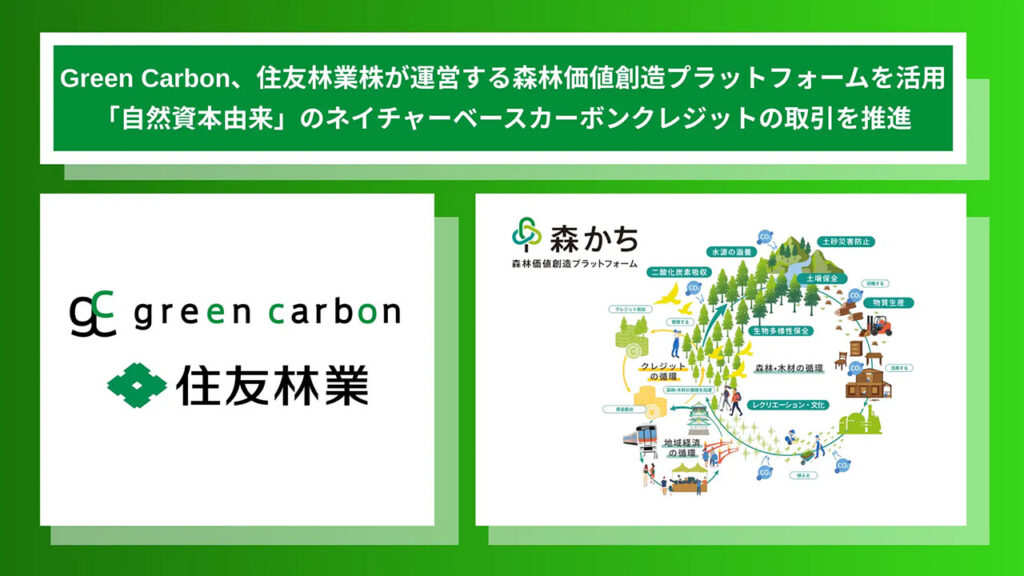Updated by "Forest Circular Economy" Editorial Board on October 01, 2025, 2:44 PM JST
Editorial Board, Forest Circular Economy
Forestcircularity-editor
We aim to realize "Vision 2050: Japan Shines, Forest Circular Economy" promoted by the Platinum Forest Industry Initiative. We will disseminate ideas and initiatives to promote biomass chemistry, realize woody and lumbery communities, and encourage innovation in the forestry industry in order to fully utilize forest resources to decarbonize the economy, strengthen economic security, and create local communities.
Sumitomo Forestry, which is involved in the creation of forest-based J-credits, and Green Carbon, Japan's largest provider of agriculture-based credits, have recently begun collaborating to create and sell nature-based carbon credits to meet growing corporate demand for carbon reduction in anticipation of the GX-ETS, an emissions trading system that will be fully operational from fiscal 2026. Green Carbon is responding to growing corporate demand for carbon reduction in anticipation of the GX-ETS, an emissions trading system that will be fully operational from FY2026. By joining forces with businesses in the different fields of forestry and agriculture, the two companies aim to ensure a stable supply of nature-based J-credits.
Accelerating decarbonization in Japan is increasing the demand for J-credits. This collaboration is a response to these market trends. Sumitomo Forestry manages a forest fund worth approximately 60 billion yen and operates the forest value creation platform "Mori Kachi", utilizing the knowledge it has accumulated through the management of company-owned forests, while Green Carbon has a track record of creating J-credits in the agricultural sector by extending the period during which paddy fields can be dried during the summer and by utilizing biochar.

The two companies will strengthen the creation and sale of forest-derived credits using "Mori Kachi" through their collaboration. In the future, the two companies will also consider handling agriculture-derived credits through "Mori Kachi. In the past, forest- and agriculture-derived credits have often been handled separately, but the two companies intend to promote the concept of "nature-based J-credits," which integrate forest- and agriculture-derived credits, in order to help companies decarbonize and become carbon neutral.
This collaboration has the potential to add new economic value to Japan's natural capital. A system in which environmental conservation activities directly contribute to corporate decarbonization will create incentives to protect and utilize the natural environment, leading to the circulation of forests, timber, and local economies in addition to credits. It is expected to be developed in the future as a model for utilizing natural capital in economic activities.